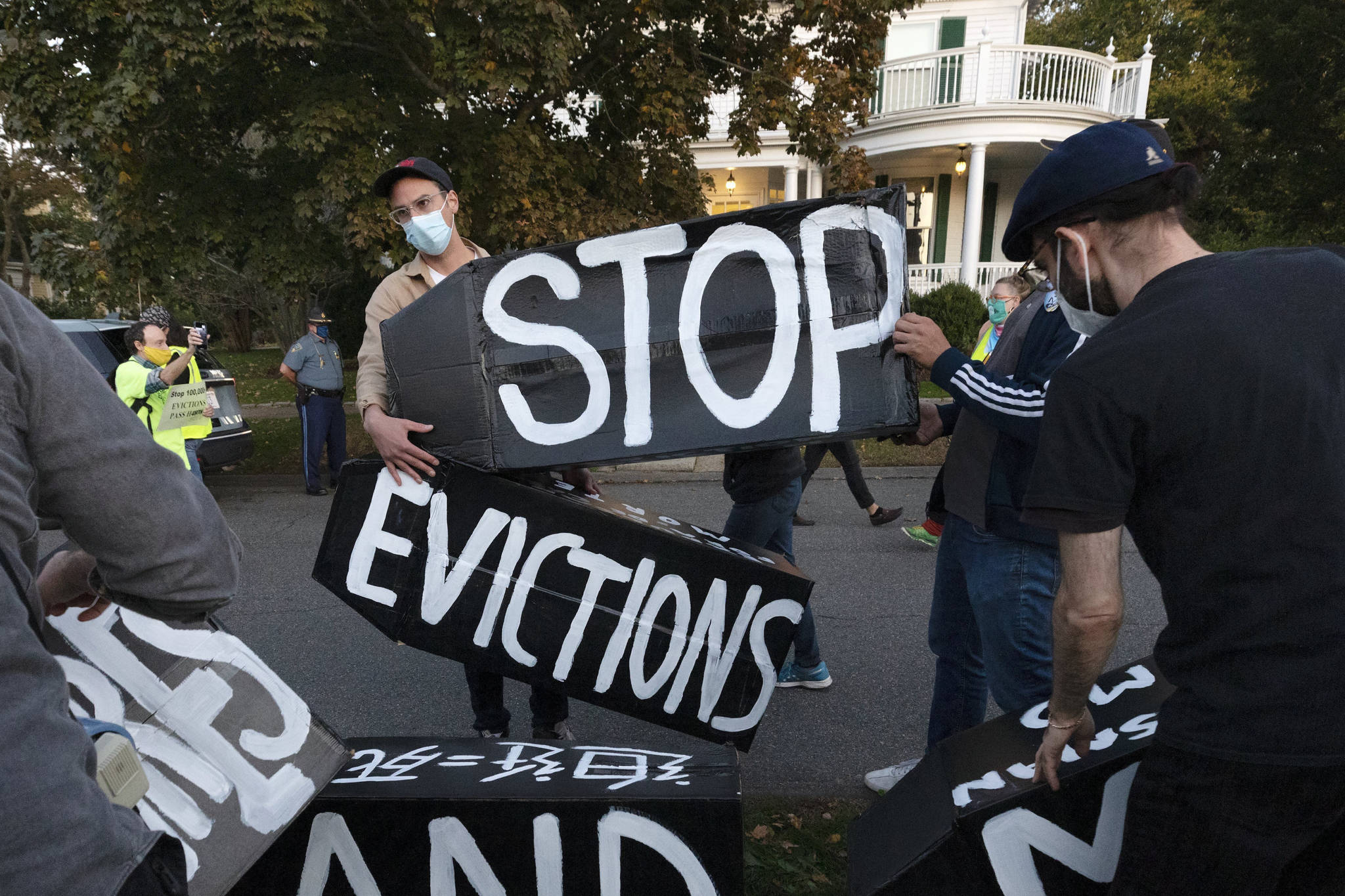By Becky Bohrer
Associated Press
JUNEAU — A federal freeze on most evictions enacted last year is scheduled to expire July 31, after the Biden administration extended the date by a month. The moratorium, put in place by the U.S. Centers for Disease Control and Prevention in September, was the only tool keeping millions of tenants in their homes. Many of them lost jobs during the coronavirus pandemic and had fallen months behind on their rent.
Landlords successfully challenged the order in court, arguing they also had bills to pay. They pointed out that tenants could access more than $45 billion in federal money set aside to help pay rents and related expenses.
Advocates for tenants say the distribution of the money has been slow and that more time is needed to distribute it and repay landlords. Without an extension, they feared a spike in evictions and lawsuits seeking to boot out tenants who are behind on their rents.
As of June 7, roughly 3.2 million people in the U.S. said they face eviction in the next two months, according to the U.S. Census Bureau’s Household Pulse Survey. The survey measures the social and economic effects of the coronavirus pandemic every two weeks through online responses from a representative sample of U.S. households.
Here’s the situation in Alaska:
What’s the status of eviction moratoriums in the state?
The Alaska Legislature last year put in place moratoriums on the disconnection of utility service or evictions because of nonpayment of rent, both of which expired last year. There is, however, still the CDC moratorium related to evictions.
What is being done to help people facing eviction:
The Alaska Housing Finance Corp., a public corporation, is administering a program using about $240 million in federal recovery aid money to provide up to a year of rental or utility payment assistance for those affected by the pandemic who meet eligibility requirements. Under the program, past-due rent and utilities back to March 13, 2020, are to be paid first, with remaining funds going toward future assistance. Funding is expected to be available at least through September, the corporation states. The program allowed renters who did not owe back rent to also apply.
The application period closed in March, and the first payments were approved at the end of that month, said Stacy Barnes, a corporation spokesperson. The corporation has reported paying about $51.8 million to landlords and utilities through June 18.
About 25,450 applications met income eligibility requirements, which represents about 28% of Alaska’s rental units, according to the corporation.
The municipality of Anchorage and 15 regional housing authorities partnered with the corporation as part of the program, Barnes said.
Barnes said the program provides “an important bridge for renting families who have and may still be struggling through the pandemic as our economy recovers.” She said it also “gives peace of mind to the landlords who are dependent on the income and keep the overall housing market healthy.”
More than 8,000 landlords, many who own multifamily dwellings like duplexes, are participating, Barnes said.
About 3,600 program applicants had reported receiving eviction notices, she said by email.
How are the courts handling eviction hearings?
During a four-month span starting in February, 360 eviction cases were filed in Alaska courts, according to information provided by the state court system. Most of those were in Anchorage, Alaska’s largest city.
The court system provided numbers only and not the reasons for the eviction proceedings.
The court system, on a frequently asked questions page, provides a link to the form tenants seeking temporary eviction protection under the soon-to-expire CDC order could use. The site notes tenants are still responsible for rent due under their lease agreements.
If an eviction case began before a tenant provided their landlord a declaration form and a form subsequently was submitted to the landlord or court, judges have been required to stop the case until the CDC order ends, the court system says.
Are evictions expected to create a surge in homelessness?
That is not immediately clear.
Brian Wilson, executive director of the Alaska Coalition on Housing and Homelessness, by email said there is concern surrounding the issue because it is already a struggle to meet the needs of individuals “who are currently at risk of or literally experiencing homeless. If there’s a wave of evictions, there is no feasible way we will have the resources” to prevent families and individuals from falling into homelessness.
A U.S. Census survey of about 10,175 Alaskans, released earlier this month, showed about 3,820 respondents were concerned they could be evicted in the next two months.

